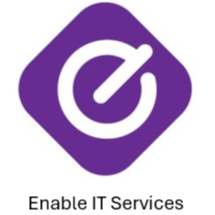
There are 82 Companies in Canada
that provide Hosting and Cloud Services!
There are over 43,200 companies in the Canadian Information and Communications Technologies (ICT) sector. The large majority (over 39,000) fall within the software and computer services industries.
Discover Top IT Companies in Canada specialized in Hosting and Cloud and other related services. Find the best IT service providers for your projects.
Entrepreneurs often struggle to differentiate between cloud and hosted services, which may seem similar but differ in processes. Understanding these differences can help choose the right for your business. Pick the right home for your website involves considering technical aspects, reliability, cost, and customer support and other factors.
There are more than 330,000 web hosting providers all around the world, and this number is expected to grow as the Internet expands. Even with the fierce competition, new providers continue to enter the market. At the same time, data reveals that approximately 60% of all corporate data is now stored in the cloud. It has also witnessed a 10% increase compared to the previous year, 2021.
Handpicked companies • No obligation to hire • 100% risk-free
Featured Companies in Canada
This month, the following Hosting and Cloud companies managed to provide an outstanding service and support. It's worth taking a look.
FlairsTech is a technology-driven Managed Services Provider (MSP) operating from five offices on three continents, serving over 100 global clients.
Explore Top Hosting and Cloud Companies in Canada

TechGropse Pvt. Ltd. Verified Company
Mississauga, Canada Head office in: United Arab Emirates
Techgropse is a leading Mobile App and Web Development Company, dedicated to turning innovative ideas into remarkable digital solutions. 500+ Clients

Developer Bazaar Technologies Verified Company
Mississauga, Canada Head office in: United States
Developer Bazaar Technologies is a Top-Ranked Mobile App & Web Development Company, specializing in transforming ideas into stunning realities.
Top product development company with Agile methodology. Hire software developers to Get all product development solution in seamless manner.
Revolution Redefined
Services:
Digital Link is pleased to deliver managed IT solutions, web design and digital marketing services to clients across Canada.
K2 Networks is a Full-Scale IT Consulting firm that specializes in providing Managed IT Services, Cybersecurity, and Strategic IT Consulting Services.
Services:
From Etobicoke to Thunder Bay, Ghrix Canada provides professional web design, development, and AI solutions to help Canadian businesses grow online.
Based in Nova Scotia, Canada with over 20 Years Experience. We take care of your online presence big or small while you focus on your customers
HabileLabs - A Premier Software Development Company in India
Comprehensive IT support: setup, maintenance, and management of workstations, servers, networks, cybersecurity, and cloud solutions.
Atomic 55 is a marketing company in Kelowna, BC, Canada established in 2001, specializing in online leads and Internet technology for businesses.
Amin Softtech is a custom software development company revolutionising industries with innovative solutions. Empowering businesses through technology.
Enable IT Services, based in Perth, provides managed IT services, cybersecurity, and cloud integration for reliable IT infrastructures.
Services:
CG Technologies is a Managed IT Services provider
Empowering businesses with innovative IT solutions, cloud services, and digital transformation.
Cybersecurity, Managed IT and Cloud Hosting solutions that bring you peace of mind.
One Piece IT delivers tailored IT support, cybersecurity, and web solutions to help Calgary businesses grow securely and efficiently.

Telepathy Infotech Verified Company
BRITISH COLUMBIA, Canada Head office in: United States
We are a dynamic software company committed to crafting innovative solutions that empower businesses to thrive in the digital age.
Filter Hosting and Cloud Companies in Canada by Cities
Find the right tech company near you or from a specific city. Some of the best companies might be located in smaller cities.
Find more Hosting and Cloud companies around the world
TechBehemoths is the world's most advanced and user-friendly platform to match IT Companies with real clients without hustle.
Canada IT Industry: Companies and General Profile
Canada IT Industry: Companies and General Profile
There are over 43,200 companies in the Canadian Information and Communications Technologies (ICT) sector. The large majority (over 39,000) fall within the software and computer services industries.
The ICT sector consists mainly of small companies, with approximately 37,500 of them employing fewer than 10 people. The number of large companies employing over 500 individuals accounts for approximately 105 firms, including subsidiaries of foreign multinational corporations.
In a more industry-narrow way, the Canadian advertising and marketing industry is growing based on international awareness of creativity and the multicultural population. The progressive approaches are resonating with both US and globally-based companies, Mark Tharme from Muse Marketing says.
Why You Should Work With Canadian IT Companies
Canada has found itself in a favorable position compared to other countries that have a well-developed IT infrastructure. Web & IT agencies have a fast-developing rate due to facilitating policies and attracting more young professionals than any other country in the region.
Additionally, IT companies in Canada provide a full-service range with a considerably lower price than in the U.S., and offer in exchange excellent execution, fair customer experience, and professional project management.
From another perspective, working with Canadian IT companies could bring added value in terms of security. In uncertain times, both politically and economically, working with IT companies in Canada reduces technology risk.
What You Should Be Aware of When Working With Canadian IT Companies
The Canadians started to focus on developing their IT industry in 2012, which mainly reveals a lack of consistent experience in the web & software industry. Since almost all IT companies in Canada are small, with fewer than 10 people, the industry is in the full development process, and most of the agencies are not yet ready to take on big projects. Since then, the Canadian IT industry has rapidly evolved with major tech hubs like Toronto, Vancouver, and Montreal by 2025.
At the same time, Canadian companies pay a living wage, and our standard of living is higher than in many other countries. As a result, expect the cost for services to be somewhat higher than in emerging economies.
Are Canadian Web Companies Reliable?
Along with the workforce, Canada attracts an increasing number of companies from around the world, and many of them find the place comfortable and suitable for growing a business in the IT industry. In 2025, there were more than 7,000 IT startups in Canada, according to StartupBlink. Small companies in the Canadian IT industry are new entries and don’t have a global reputation compared to tech giants that relocated or opened new offices in Canada. Nonetheless, you cannot name small Canadian IT companies unreliable, as they all obey the same principles and rules as the bigger ones.
How the Canadian IT Industry Compares to the Neighboring Countries
With the leading US on the continent and probably globally, Canada started to get more attention from the market as being a healthy alternative to what the US has to offer. This refers both to skilled developers & web designers and also clients. Due to the market accessibility and developed IT infrastructure, Canada has its own advantages over the US, like prices and availability, but it’s still behind the U.S in terms of competitiveness.
Overall, Canada is a promising destination for IT companies and a good option for web projects with a growing number of IT centers. The Toronto - Kitchener - Waterloo IT area registered good progress both in training and hiring new talents that compete even with the US Silicon Valley.
What Makes Canada Attractive for IT Companies?
Canada is attractive because the society embraces a global mindset, which is natural due to the multicultural population, both in the industry and in the general population. Historically, the Canadian design and advertising industry was built on American, European, and Japanese cultural influences. Today, the country benefits from influences from all over the world.
At the same time, Amanda Nelson from The Art Of Business mentions that Canada has found itself in a favorable position compared to other countries that have well-developed IT infrastructure. Web & IT agencies have a fast-developing rate due to facilitating policies and attracting more.
How Does the Canadian Government Support the Local IT Sector?
Federally, the Canadian government is providing access to capital through grant programs, including digital transformation grants for businesses, which in turn creates opportunities for digital marketing and IT firms as service providers.
Alberta and Ontario - The Best Canadian Territories/Provinces For IT
Out of 10 Territories and Provinces, Canada is divided. There are 2 worth mentioning - Alberta and Ontario, with Calgary and Toronto as the main tech hubs.
The Toronto/Hamilton business corridor (known as the GTHA) is growing rapidly, both in population and as an international business centre. It already has the highest-density population in Canada and is projected to grow significantly by 2050. With close proximity to Northeastern US markets, high awareness of the city of Toronto as an international destination, and an excellent culture of creativity across all disciplines, this area is well-positioned for growth. Immigration policies are also favorable for companies seeking a location in North America.
In addition, according to Ty Mikitka from Vertical Motion Inc., in recent years, Calgary, Alberta, has made growing strides to become a recognized Western Canadian technology hub thanks to the influx of large technology companies. Notable organizations, including Unity Technologies, Infosys, Test Driven Solutions, RBC Innovation Hub, and Amazon Web Services (Late 2023-Early 2024), now call Calgary home, creating thousands of IT jobs for local Canadians.
"Canadian IT Talent Pool is Good to Excellent"
When talking about the Canadian talent pool, Mark Tharme appreciated the local talent pool as good to excellent. He thinks that IT and communications-related education is available at all levels: colleges, universities, and private schools offer courses in a wide range of information technology disciplines. Students have opportunities to do work placements, co-ops, and internships with many well-regarded companies while studying or upon graduation from a recognized program.
Plan to Open a New IT Business in Canada? Focus on New Technologies!
Local tech leaders also mention that there is enough room in the market for new, innovative companies. However, most of the opportunities are especially in new and emerging technology areas, including AI, cybersecurity, and data management. Canadian companies are "punching above their weight" in many of these areas. Another sector good to explore is security. As Justin Harney from LionEater, the country needs IT security leadership.
As for how easy it is to open a business in Canada, Jeffrey Miles from Jeff Social Marketing mentions that it’s simple to open a business in Canada. The first step is to apply for a business license.
This article was created together with professionals coming from reputable Canadian IT companies. Special credits: Jeffrey Miles, Mark Tharme, Justin Harne, Ty Mikitka, and Amanda Nelson.
What is Hosting and Cloud and what are its benefits for your projects?
Entrepreneurs often struggle to differentiate between cloud and hosted services, which may seem similar but differ in processes. Understanding these differences can help choose the right for your business. Pick the right home for your website involves considering technical aspects, reliability, cost, and customer support and other factors.
There are more than 330,000 web hosting providers all around the world, and this number is expected to grow as the Internet expands. Even with the fierce competition, new providers continue to enter the market.
At the same time, data reveals that approximately 60% of all corporate data is now stored in the cloud. It has also witnessed a 10% increase compared to the previous year, 2021.
Cloud Services
Cloud services are computing services provided by third-party hosts through the internet and on-demand. They allow customers to access and utilize remote computing resources effortlessly. There are three main categories of cloud: Software as a service (SaaS), Platform as a service (PaaS), Infrastructure as a service (IaaS).
Benefits of Using Cloud-Based Services
Cloud services offer several advantages that are not available with hosted solutions:
-
IT Optimization: With cloud services, the provider is responsible for building and maintaining all the hardware, so your IT department doesn't have to manage servers or install and update software on individual computers. Additionally, the provider is responsible for ensuring security and resolving any problems that might come up.
-
Budget-friendly approach: Cloud services offer a cost-efficient approach where you only pay for what you use. There is no need to invest in hardware or purchase software licences that may end up being unused by your team.
-
Business system integration: To integrate various third-party cloud solutions, you can streamline workflows and enhance team collaboration and productivity. For instance integrating your cloud communications platform with a CRM. Doing so ensures employees have access to customer information before they answer incoming calls and automatically logs all calls into the CRM.
-
Increase agility and scalability: Cloud services let you make changes in just a few clicks, whether you need to shift workflows, add new features and functionality, or change the number of users.
-
Support AI, predictive analytics, and IoT: With your data in the cloud, you can easily apply these advanced technologies to improve efficiency, gain new insights, and future-proof your business.
-
Support remote workforces: The workforce can access cloud services anytime, anywhere, using any device, with just an internet connection and login credentials.
Hosting Services
Hosted services, much like cloud-based solutions, are managed by a third-party provider and accessed through the internet. With hosted solutions, the provider owns and maintains physical servers in a private location rather than relying on a public cloud. This allows the service to be accessed online without the need for installing hardware or software. Users typically access it through a virtual private network or remote desktop.
Benefits of Hosting Services
Hosted services offer some of the same advantages as cloud solution, including:
-
Remote access and the ability to integrate with certain other cloud solutions. Because the software and hardware are maintained by the provider, there's also less for IT to manage than with traditional computing solutions (but typically more than with cloud solutions).
-
Offers greater customization options compared to cloud services, depending on the setup and service agreement.
-
Provide more control over security protocols, which is particularly beneficial for companies operating in highly regulated industries.
To Sum Up
Cloud services are a more cost-effective option compared to hosting services. They are easier to set up, manage, and maintain. Although hosting services offer more control, they require additional IT work and often come at a higher price. However, it's important to analyze your specific business requirements before deciding on a hosting type. At the moment Techehemoths has almost 800 Hosting & Cloud service providers.
Take a look at their profiles and feel free to contact them, the smart filters will also help you, Moreover, you can submit your project and our team will hand-pick and send you the best matching service providers, and you will get free quotes in about 1-hour. Also, if you want to learn more about cloud and hosting services, check out our blog for additional information.




















